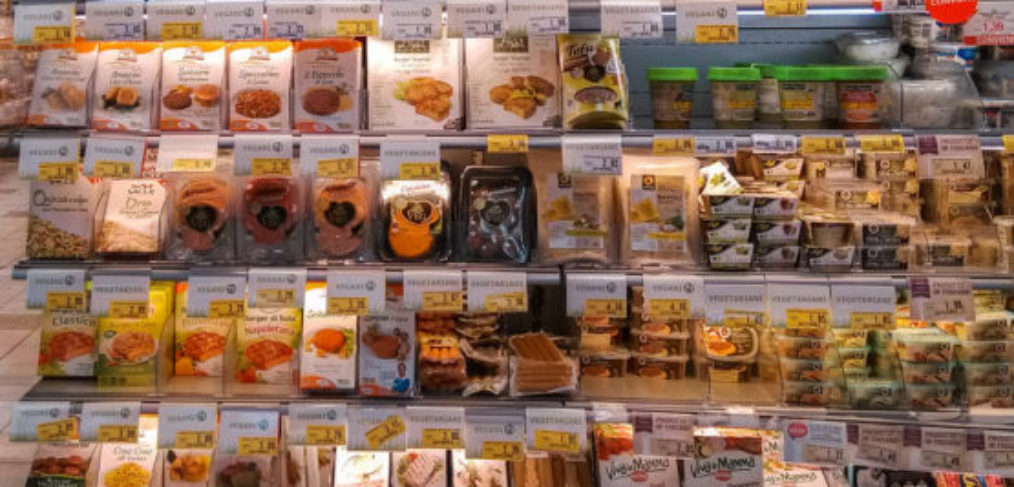Do We Really Want to Eat Something Labeled Fake?

Pseudo. Or Faux. As in Fake.
How much processing, refining and packaging can a food undergo before it’s no longer food?
I’ve taken to referring to this category over the years as non food, or fake food, but of course, they’re not labeled as such.
In fact, many have forgotton what food truly is, in its truest form (something we eat or drink as a source of nourishment to promote growth and development) as a by product of shopping in a hurry, eating what’s most convenient and not making what we eat and where it comes from a top priority.
Would it be easier in a world in which food were actually labeled fake?
Not that this would ever be the reality… or would it?
Candidly, we are already living in that very world; and even though not all fake food carries this label, some actually do.
This only recently dawned on me when I was thinking back to my vegan days.
While my own approach was in fact sound in terms of the amount organic local produce I ate, not putting too much focus on grains or vegan desserts but there was one gap: protein.
I relied heavily on all the “alternative” proteins which felt omni present back then, and even though I was getting a moderate portion of my own macros from protein at best, regular appearances of things like tofurky, “neat” (an alternative to meat made of tree nuts, beans, and grains) and “vegan egg” egg replacer happened on a weekly basis.
Now let’s consider this for a moment. There I was in my early 20’s, following one of many approaches to eating I’ve tried, both to address the years of GI distress I’d already been dealing with and also wanting (but not understanding how) to support animal welfare.
So why was I looking for food that tasted, looked like and was even labeled to mimic meat?
It makes no sense and it makes even less sense that I wasn’t bothered about eating something literally labeled ‘fake’.
Ultimately for me, as part of a very gradual transition and discovery from vegan to paleo, the realization that boycotting all fish, meat, poultry and preaching about how they were all so horrible for the planet and unethical did no service to further animals rights.
In fact, not supporting the local fisherman and ranchers who are mindfully raising these animals, was actually working against the very cause I thought I was supporting.
That epiphany came right around the same time I really had to take inventory about whether I felt I was thriving on a vegan diet.
I was not.
And in all honesty, my GI symptoms had grow worse.
Of course, I know now that it was far from helpful or health promoting for me to have been eating so many inflammatory foods: soy, grains, too many processed nut products, toxic vegetable oils and of course, too much texturized vegetable protein in the form of all those fake meats.
What we choose to eat is a personal preference and I respect each person’s choice to eat however they choose.
Yet I cannot and will not refrain from sharing what I’ve learned, both on a personal note as well as from having had the opportunity to have worked with such a diverse clientele over the years.
However you choose to eat, do it with authenticity.
Find out what the original regime you’re trying to implement consisted of, research whether or not it really is a good fit and then head to the best doctor you can find to get to work.
Doctor?
Yes, as in… Dr. You.
Only you know how you feel and the beautiful thing about having this food first appraoch is you can begin to dissect what you’re eating, how it makes you feel and begin to notice trends.
Zero risk here with this empowering exercise; what you can take away is how to choose the foods that make you feel fantastic, avoid those that cause distress and then have the education to choose.
Regardless of how sick or healthy you are now, if you’re not doing this, there’s a huge part of the foundation missing.
Whether you, like me, feel your best when you follow an authentic, high fat / Paleo approach, or you choose one which may be a hybrid of ancestral / mediterannean / paleo or even vegan, do it with intention and with integrity.
It doesn’t take a degree in nutrition or even any training in the field to know that something outwardly labeled fake is just a bad idea.





